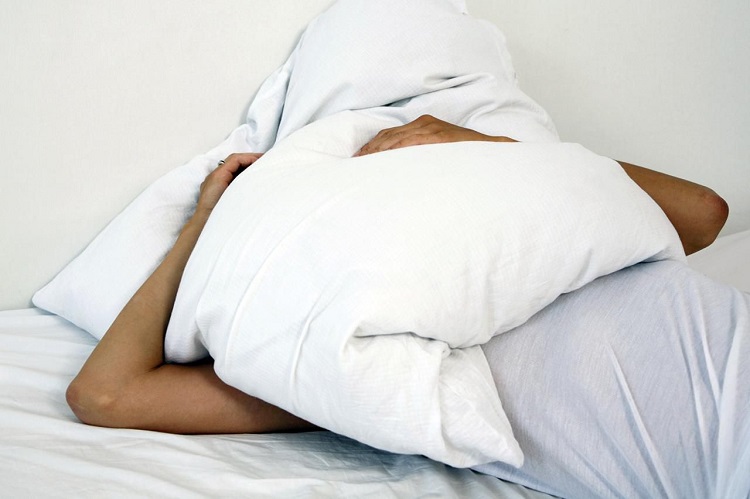Can Sleep Deprivation make you Nauseous

Sleep is an essential aspect of maintaining overall well-being, playing a crucial role in physical and mental health. Sleep deprivation, a common phenomenon in today’s fast-paced society, has been associated with a myriad of health issues. While the most commonly known effects include fatigue, irritability, and cognitive impairment, recent studies have delved into a lesser-known connection between sleep deprivation and nausea. This article aims to explore the intricate relationship between these two seemingly unrelated phenomena.
The Basics of Sleep Deprivation:
Before delving into the nauseous aspect, it’s essential to understand what sleep deprivation entails. Sleep deprivation occurs when an individual consistently fails to obtain the recommended amount of sleep, which is typically 7-9 hours for adults. This deprivation can result from various factors such as work demands, lifestyle choices, or underlying health conditions.
Effects of Sleep Deprivation on the Body:
The consequences of sleep deprivation extend far beyond feeling groggy and fatigued. The body relies on sleep to repair tissues, consolidate memories, and regulate various physiological processes. When deprived of adequate sleep, the body’s ability to perform these functions is compromised, leading to a cascade of negative effects.
One of the primary consequences of sleep deprivation is the dysregulation of hormones, particularly those related to stress and appetite. Elevated levels of stress hormones, such as cortisol, and disruptions in the production of hunger-regulating hormones, like ghrelin and leptin, are common in individuals with chronic sleep deprivation.
The Nausea Connection:
While it might seem surprising, the link between sleep deprivation and nausea is not as far-fetched as it may appear. Research has shown that sleep plays a crucial role in maintaining the equilibrium of various bodily functions, including those related to the gastrointestinal system. When sleep-deprived, the body experiences disruptions in these functions, potentially leading to feelings of nausea.
- Gastrointestinal Distress: Sleep deprivation has been associated with increased susceptibility to gastrointestinal issues. The digestive system relies on a delicate balance of hormones and neurotransmitters to function optimally. Sleep deprivation disrupts this balance, potentially leading to increased stomach acidity, altered gut motility, and a heightened sensitivity to nausea-inducing stimuli.
- Immune System Suppression: Lack of sleep compromises the immune system, making the body more vulnerable to infections and illnesses. Nausea can be a symptom of various infections, and as the immune system weakens with sleep deprivation, the likelihood of experiencing nausea increases.
- Inflammation and Oxidative Stress: Chronic sleep deprivation has been linked to increased inflammation and oxidative stress in the body. Inflammation can affect the gastrointestinal tract, leading to symptoms such as nausea and discomfort.
- Alterations in Neurotransmitters: Sleep deprivation disrupts the delicate balance of neurotransmitters in the brain, including serotonin and dopamine, which play a role in regulating mood and nausea. Imbalances in these neurotransmitters can contribute to feelings of nausea and discomfort.
- Psychological Factors: The psychological toll of sleep deprivation cannot be ignored. Stress, anxiety, and depression often accompany prolonged periods of insufficient sleep. These mental health factors can contribute to the manifestation of physical symptoms, including nausea.
Mitigating Sleep-Related Nausea:
Understanding the connection between sleep deprivation and nausea opens the door to potential strategies for alleviating these symptoms. Prioritizing healthy sleep hygiene practices can significantly impact both the quantity and quality of sleep, subsequently reducing the likelihood of experiencing nausea.
- Establishing a Consistent Sleep Schedule: Going to bed and waking up at the same time every day helps regulate the body’s internal clock. This consistency reinforces the natural circadian rhythm, promoting better sleep quality and reducing the risk of nausea.
- Creating a Relaxing Bedtime Routine: Engaging in calming activities before bedtime, such as reading or practicing relaxation techniques, signals to the body that it’s time to wind down. This can contribute to a smoother transition into sleep, minimizing disruptions to the gastrointestinal system.
- Limiting Stimulants Before Bed: Caffeine and nicotine are stimulants that can interfere with the ability to fall asleep. Limiting their consumption, especially in the hours leading up to bedtime, can improve sleep quality and reduce the likelihood of nausea.
- Optimizing Sleep Environment: Creating a comfortable and conducive sleep environment, including a cool, dark, and quiet room, can enhance the overall sleep experience. Eliminating potential disturbances can contribute to uninterrupted sleep and mitigate nausea.
- Addressing Underlying Health Issues: If nausea persists despite improvements in sleep hygiene, it’s essential to consult with a healthcare professional. Underlying health issues, such as gastrointestinal disorders or infections, may require specific medical intervention.
Conclusion:
Sleep deprivation is a pervasive issue in today’s society, and its impact extends beyond mere fatigue. The intricate connection between sleep deprivation and nausea sheds light on the importance of prioritizing sleep for overall well-being. By understanding the physiological and psychological mechanisms at play, individuals can take proactive steps to mitigate the risk of experiencing nausea and other adverse health effects associated with insufficient sleep. As the scientific community continues to delve into the complexities of sleep and its impact on health, fostering a culture that values and prioritizes adequate sleep becomes increasingly crucial for a healthier, more balanced society.




